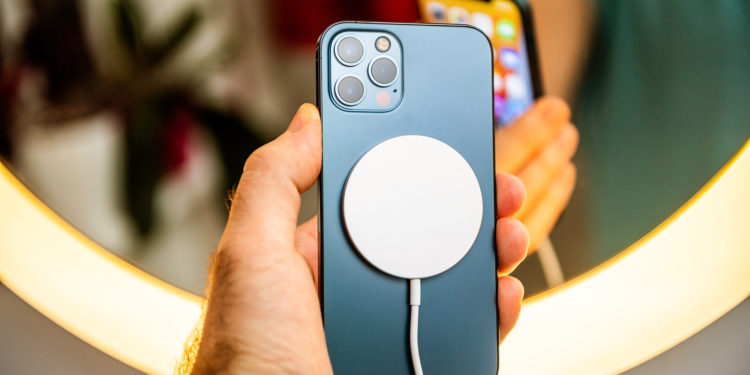In a support document updated this week, Apple provided a list of products that should be kept a safe distance from medical devices, such as implanted pacemakers and defibrillators, due to potential magnetic interference.
To avoid possible interference with medical devices, Apple says the products listed below should be kept a safe distance from medical devices - more than 6 inches (15 cm) apart, or more than 12 inches (30 cm) apart. The latter applies to Apple products that charge wirelessly. Apple recommends consulting a physician and the device manufacturer for specific guidelines.
These Apple products contain magnets
Accordingly, the following Apple products should be kept at a safe distance from your medical device:
AirPods and charging case
- AirPods and charging case
- AirPods and case for wireless charging
- AirPods Pro and case for wireless charging
- AirPods Max and Smart Case
Apple Watch and accessories
- Apple Watch
- Apple Watch straps with magnets
- Apple Watch accessories for magnetic charging
HomePod
- HomePod
- HomePod mini
iPad and accessories
- iPad
- iPad mini
- iPad Air
- iPad Pro
- iPad Smart Covers and Smart Folios
- iPad Smart Keyboard and Smart Keyboard Folio
- Magic Keyboard for iPad
iPhone and MagSafe accessories
- iPhone 12 models
- MagSafe accessories
Mac and accessories
- Mac mini
- Mac Pro
- MacBook Air
- MacBook Pro
- iMac
- Apple Pro Display XDR
Beats
- Beats Flex
- Beats X
- PowerBeats Pro
- UrBeats3
Over and beyond explained the company:
Certain other Apple products contain magnets that are unlikely to interfere with medical devices.
iPhone 12 causes surprise
If users suspect that their Apple product is interfering with the medical device, they should stop using it and contact a doctor and the manufacturer of the medical device, Cupertino said. Earlier this month explained In a small study of different types of pacemakers and implantable cardioverter defibrillators, the American Heart Association found that 11 of 14 cardiac devices exhibited interference when an iPhone 12 Pro Max was held close to the cardiac device (within 1.5 cm), even when the medical device was still in the manufacturer's sealed packaging. Lead study leader Dr. Michael Wu wrote:
We've always known that magnets can interfere with cardiac implantable electronic devices, but we were surprised by the strength of the magnets used in iPhone 12's magnet technology. In general, a magnet can alter the timing of a pacemaker or disable the life-saving functions of a defibrillator, and this research highlights the urgency for everyone to be aware that electronic devices with magnets can interfere with the heart's implantable electronic devices.
iPhone 12 & MagSafe accessories could prevent life-saving therapy
In January, a study was published in the Heart Rhythm Journal suggesting that iPhone 12 models "may potentially prevent a patient from receiving life-saving therapy" due to magnetic interference with implantable medical devices. Three doctors in Michigan tested this interaction by holding an iPhone 12 near a patient's implantable cardioverter defibrillator, which immediately entered a "suspended" state for the duration of the test. Since the iPhone 12 line was introduced in October, Apple has acknowledged that the devices may cause electromagnetic interference with medical devices such as pacemakers and defibrillators. More details on safety can be found in the sections “Important Safety Information” can be found in the user manuals for Apple products. (Photo by hadrian / Bigstockphoto)





